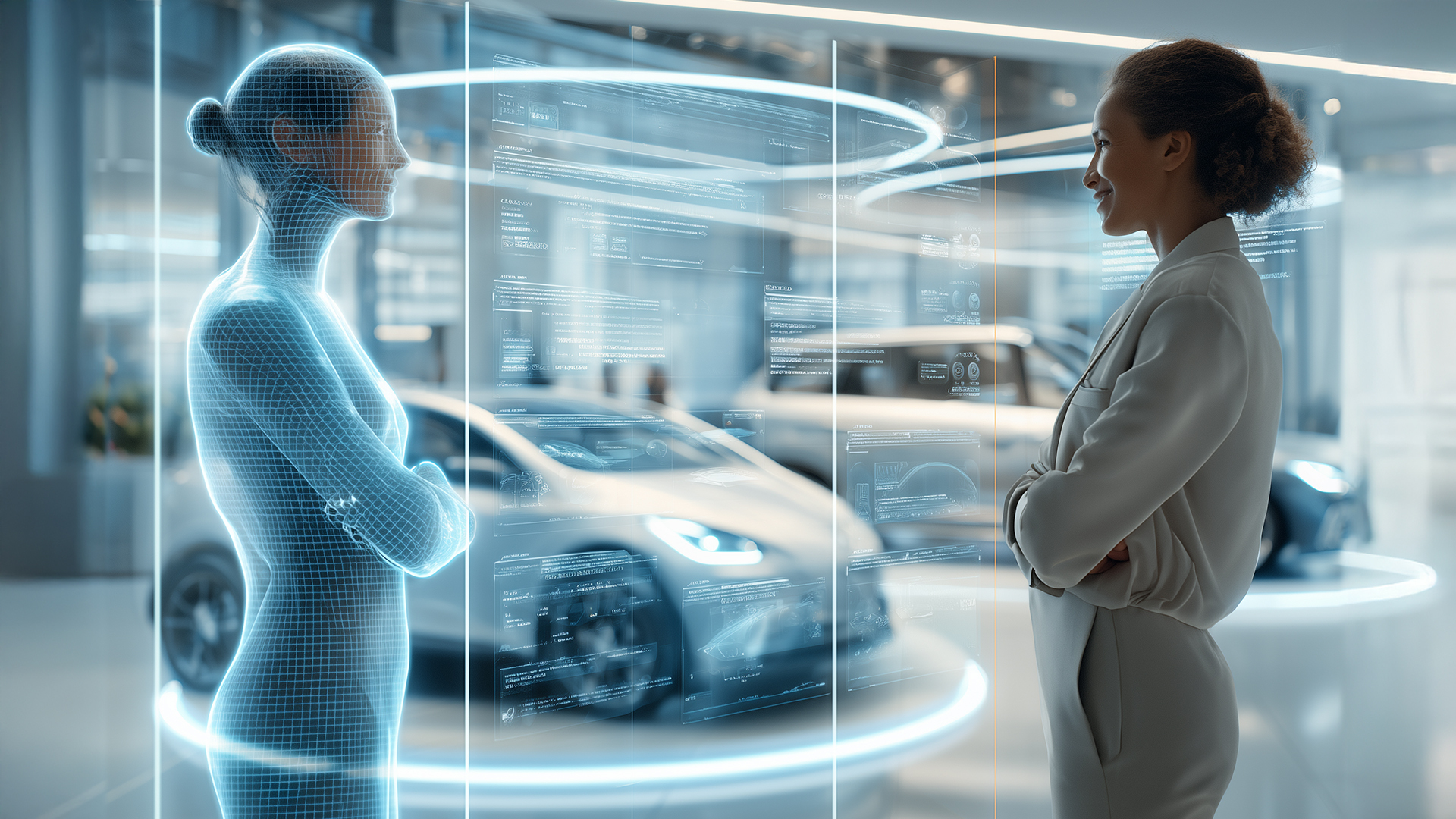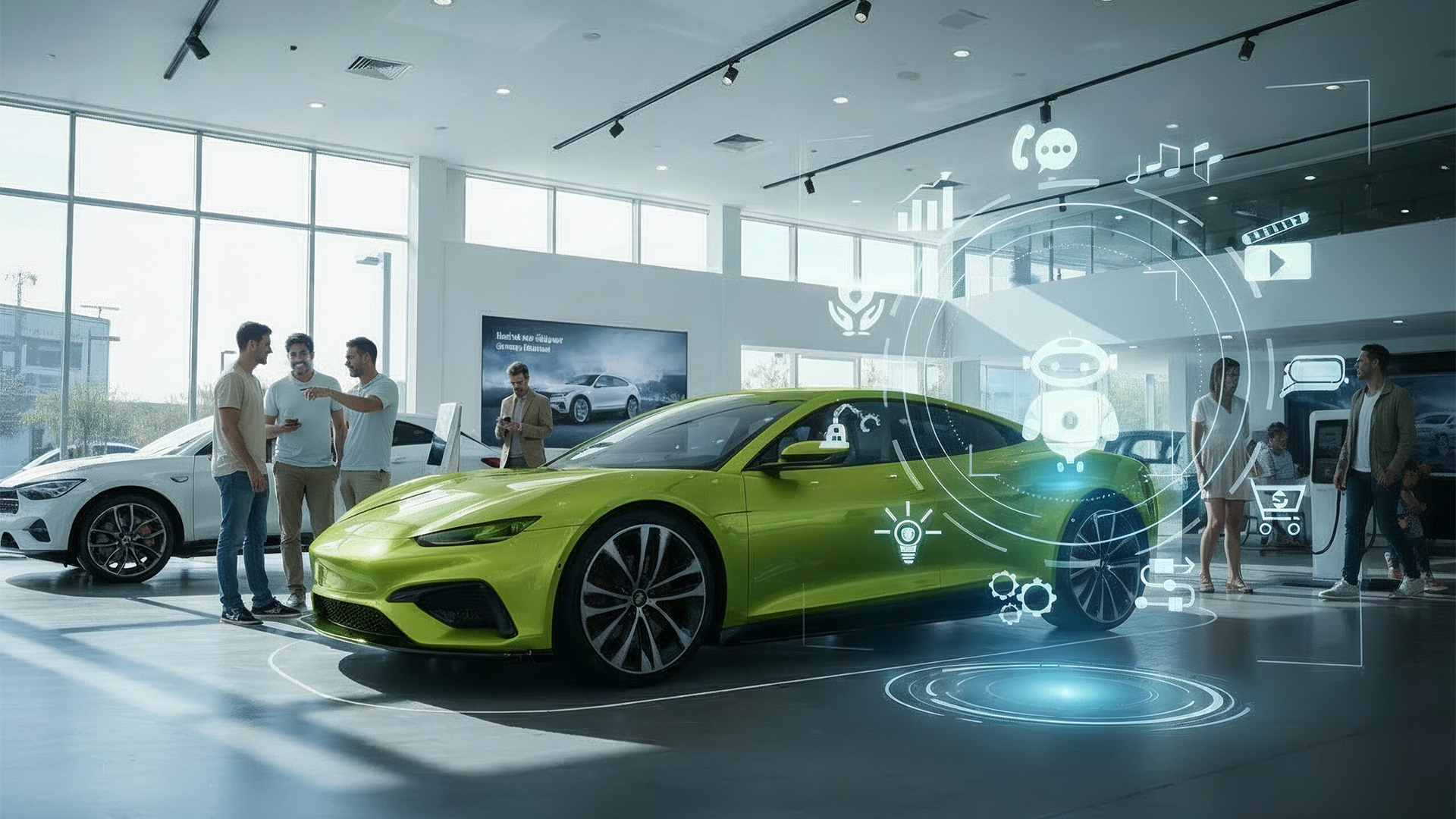Buying a new car can sometimes be a stressful and tedious process. But what if artificial intelligence could transform this traditionally intimidating process into a confidence-building journey? As we move into 2025, AI technology is revolutionizing how the automotive industry understands and addresses the deep-rooted psychological barriers that prevent customers from making purchasing decisions.
Why Is Buying a Car So Stressful? The Hidden Psychology Behind It
Buying a car can often be a stressful and frustrating experience for customers, and that directly impacts dealership performance. Buyers commonly face three key challenges:
- Trying to make sense of technical specs, features, and options just to feel confident in their choice
- Navigating a negotiation process that can feel unclear or one-sided
- Trying to make sense of technical specs, features, and options just to feel confident in their choice
What makes this experience even more difficult is the sheer volume of information customers are expected to process. The average car buyer jumps between dozens of websites, manufacturer pages, dealer inventories, and car review platforms, trying to compare models, verify specs, trims, and understand their options. Each site presents things a little differently, leading to confusion, frustration, conflicting information, and hours of research.
This fragmented journey drains time and energy. Many buyers end up feeling overwhelmed, unsure who to trust, or uncertain about what they actually want. In fact, Salesforce data highlights that:
– 44% of consumers worry about being sold services they don’t need.
– And 33% have postponed or abandoned purchases altogether, while 35% have switched brands after a poor experience
The traditional car-buying process hasn’t kept up with customer expectations of getting information instantly. It demands too much from the customer, offers too little clarity, and leaves people feeling like they’re navigating it alone. That’s where AI makes a difference by simplifying the journey, surfacing relevant answers in seconds, and helping customers find the right car.
How AI Makes Car Shopping Less Overwhelming
One of the biggest advantages is that customers don’t need to know exactly which car they want. They can simply describe their situation: “I have two kids and need something safe and reliable for under $35,000,” or “I want good gas mileage for my daily commute.” The AI understands these real-world needs and recommends options that actually fit their lifestyle, not just generic “top 10” lists.
AI provides instant, 24/7 answers to customer questions, whether about financing or specific car details, eliminating the need to wait for salespeople, search spec sheets, or jump between sites. By narrowing hundreds of vehicles to a curated list that matches a buyer’s preferences and allowing test drives to be booked instantly, AI reduces decision fatigue and frustration, keeping the car-buying process smooth and efficient, eliminating the friction that often causes potential buyers to lose momentum.
Ongoing Support Post Purchase
AI continues helping customers long after they buy their car. Instead of struggling with thick owner’s manuals or waiting on hold, customers can instantly ask questions like “How do I set up the CarPlay?” or “What does this warning light mean?” and get immediate answers. This helps customers feel confident using all their car’s features, rather than ignoring them because they’re too complicated. When people easily learn what their car offers, they’re happier with their purchase.
For dealerships, this eases the burden on support teams, letting them focus on other tasks rather than explaining basics. AI can also track maintenance and send reminders, taking care of routine follow-ups automatically. This kind of automated support equips dealerships to deliver better service with less effort. Customers get instant help, while dealerships maintain strong relationships and keep vehicles properly serviced, leading to more satisfaction and repeat business.
The Big Picture: How AI is Changing Car Sales
More and more customers are moving away from the traditional shopping experience and leaning more towards AI tools that guide their buying journey. According to Salesforce, 61% of car shoppers say they’d like help from AI to find the right vehicle, and 70% would trust it to diagnose issues with their car. That’s a big shift and a clear sign that people are not just open to AI in the car-buying process but actually starting to prefer it.
The AI automotive market is projected to surge from $4.8 billion today to an impressive $186.4 billion by 2034, according to Globe Newswire; AI is set to transform the car-buying experience by streamlining customer support, simplifying test drive scheduling, and handling a variety of operations, allowing dealership teams to focus more on building relationships and selling more cars. In practice, it’s like having the best of both worlds: you can get quick answers from AI whenever you need them, but there’s always a friendly face ready to help with the final decisions. This mix of AI and human touch will make car buying less stressful for everyone!



